Ukraine, first conclusions after two months of war
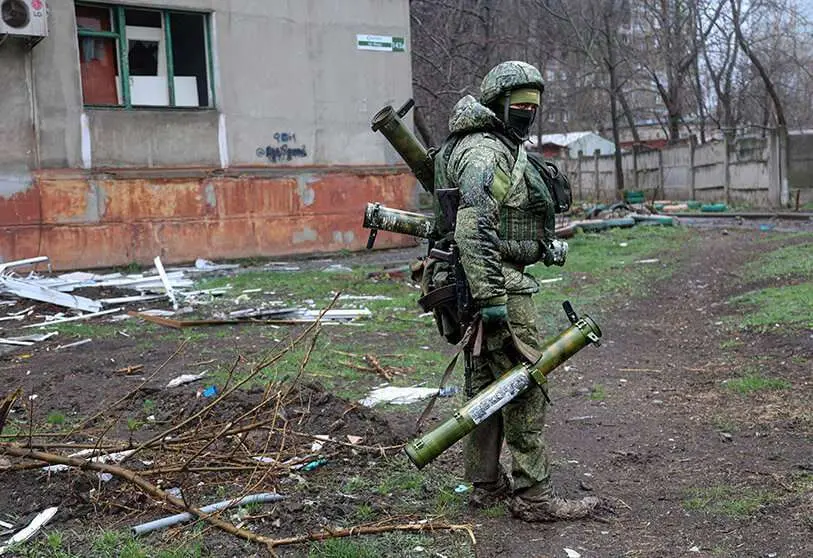
When a war, created and manipulated by Putin in this case, and which is not giving the expected or desired results, has been going on for two months and in crescendo, and many means and all kinds of units have been employed in it, it can be said that, both in terms of time and form, a good number of conclusions should be drawn that highlight many of the successes and mistakes that have been made in the conflict.
First of all, it should be noted that the Russian side failed to take into account any of the following three 'fundamental principles' that we consider essential to the success of the operations.
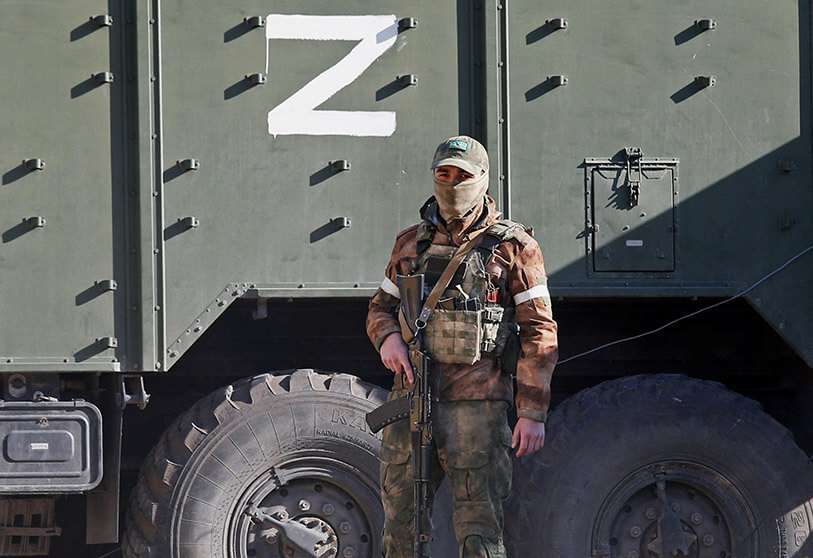
There was no "will to win" in an army at least two-thirds of whose troops were conscripts, ill-prepared and equipped with equipment of dubious capacity and modernity, and which was subjected to more than a month of constant movement and diversionary movements around the Ukrainian borders, pretending to be on manoeuvres. A principle that, on the contrary, has been vital in the Ukrainian ranks.
The much-needed 'joint action' of all the land, naval and air assets involved in the operation, due to various circumstances, errors and lack of foresight, ammunition or training, especially in the air sector, was also not carried out as it should have been.
Finally, the principle of "surprise" was never taken into consideration, giving the Ukrainians time to receive all kinds of information about the enemy deployment and the three efforts where they were going to break through the front. In short, the Ukrainians, thanks to US intelligence, knew their order of battle and, because of the protracted feints, were given time to receive support, instruction or reinforcements, mainly from the US.
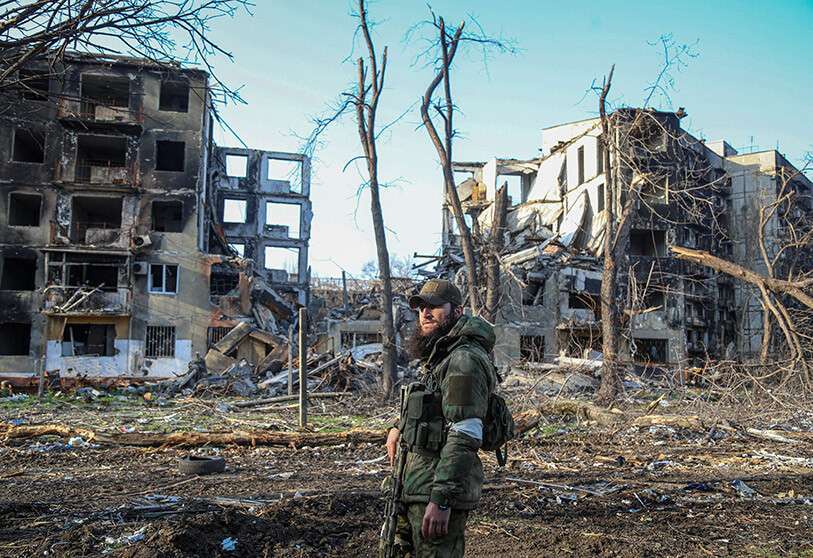
The 'decisive point' (that which is marked and defined in any operation and whose seizure, fall, maintenance or possession determines the success or failure of any major operation), Kiev, was well defined, but the means necessary for its rapid, effective or total seizure, as envisaged in the initial manoeuvre, were not employed.
The Russian 'Doctrine' (the basic document that sets out the correct way to conduct combat) is merely an evolution of the Soviet 'Doctrine' of the 1930s. Doctrine, which was based on the use in depth of complete units en masse that were overrun when the front line units were annulled or very worn out, cannot be applied at the present time, because the size of the Russian army is much smaller than that of the USSR.
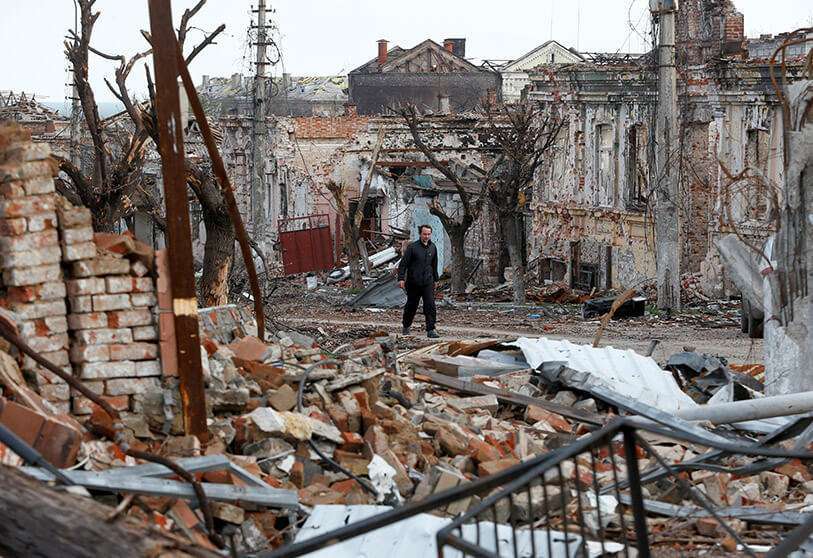
The same applies to the way of executing the 'planning and conduct of the manoeuvre' which, in this case, has been totally 'centralised' despite having required decentralisation in execution, since it was carried out by three different fronts and axes.
The poverty of the Russian Army's logistical capacity to feed the battle in depth and along several different axes shows that this shortcoming, traditionally carried over by the Russians in other engagements, has not been corrected or improved despite past failures in the same area, nor has the use, recovery and maintenance of materiel in hostile terrain under adverse conditions improved much.
It is noteworthy that this conflict has brought about major changes in the concepts of the 'tactical value and employment of battle tanks and armed vessels'. Both elements, which for many years were considered to be effective, quasi-impregnable war machines, providing a high specific value to the combat capability of nations and their armies, have shown great vulnerability to modern means of long-range, high-precision missiles or to the deadly effects of simple drones, even homemade ones, guided in close proximity, capable of delivering highly effective bombs or explosive devices to them.

Such "new vulnerabilities" will require changes in the way they are used, in their cover or protection and in the minimum distances from the enemy at which they must or can be employed. Otherwise, such expensive machines equipped with all manner of destructive capabilities will be left to the constant threat and reach of simple, cheap and highly effective weapons.
The use of mercenary units and paid or sympathetic snipers on both sides is not a good solution, because while they may provide initial and selective successes at times, they are often soldiers of circumstance operating for a high salary, who are more like hired killers or depraved looters and rapists who do not mind spreading hatred and terror among the civilian population and the traditional combatants themselves, and whose eradication or extermination will ultimately pose a serious problem for those who eventually rule the contested territories.
In this conflict, which has become a 'total war', leadership and the exaltation of patriotic sentiment have been playing a very important role in both directions. Not to underestimate the role played by 'propaganda and disinformation'. Both sides have succeeded in ensuring that their target audiences have clearly and distinctly received the messages they have been trying to convey.
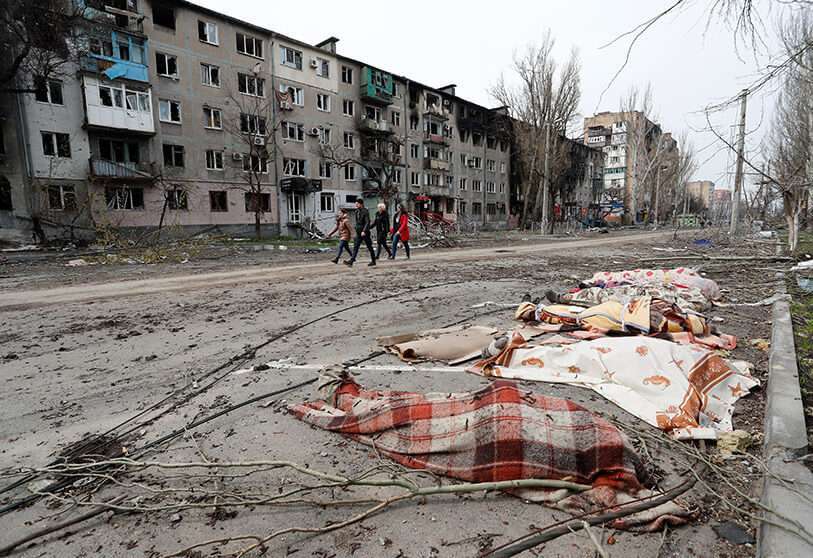
Cyber and electronic warfare (which seems to have regained much of its prominence on the battlefield), together with the poor quality and effectiveness of the country's own media, mainly Russian, have not only succeeded in attacking essential command and control communication networks, but have also forced the use of their own commercial media in high command, which has facilitated their localisation and annihilation by nearby snipers.
Putin's determination and obsession with destroying and raiding urban centres that resist him, even in pro-Russian areas of the Donbas, has had a triple negative effect; increasing hatred of him and Russians by those who have lost their homes and cities; facilitating their defence by facilitating the effects of defence lines and posts, the laying of mines and traps, and the price of the bill for their reconstruction to rise to unimaginable levels; elements that will come to harm him directly or indirectly.
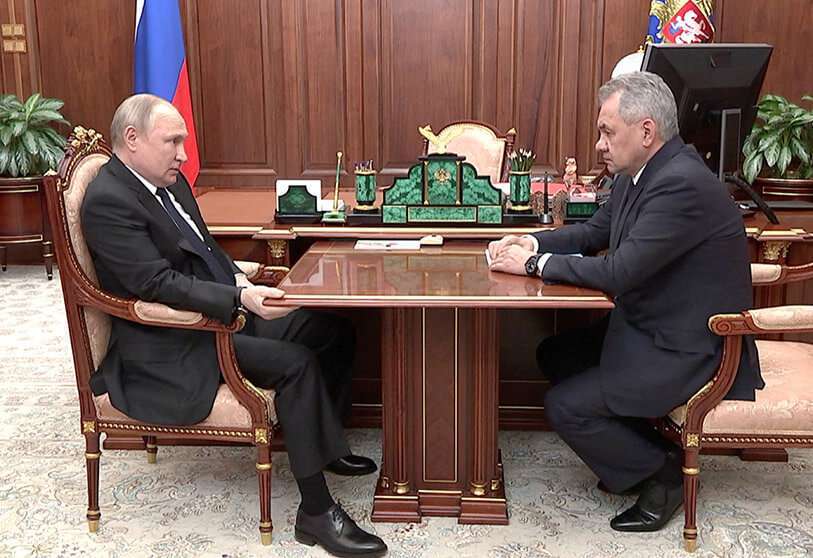
Zelenski has skilfully maintained pressure on the main parliaments in the West through scheduled and rather risky video conferences so that, at the very least, the mood or intention in their support for war material would not wane. Support that, in reality, began in a timid and almost testimonial way, to be gradually increased and completed with materials that really interest it; although there is no doubt that much of this support has been based on surplus material or material that is not in very good condition.
The huge number of civilian and military casualties shows that this war has been no joke; that excesses, abuses and war crimes have been committed - and not infrequently - on both sides and that the International Community (IC) must take the matter clearly, clearly and seriously, despite the weight of Russia and its unconditional Chinese support in the world of international
The majority of Ukrainian refugees and IDPs, at least initially, show a desire to return to their homes of origin; this will be more effective and real the bigger, better and faster the reconstruction of a country desolated by an unjust war, which for the rest of the world only serves to keep it entertained behind the TV sets, watching and living live a bloody war with hundreds and thousands of corpses, destruction and desolation, when just a few months ago, we were hiding our own thousands of deaths due to a pandemic, which in general was not well managed at a global or particular level.
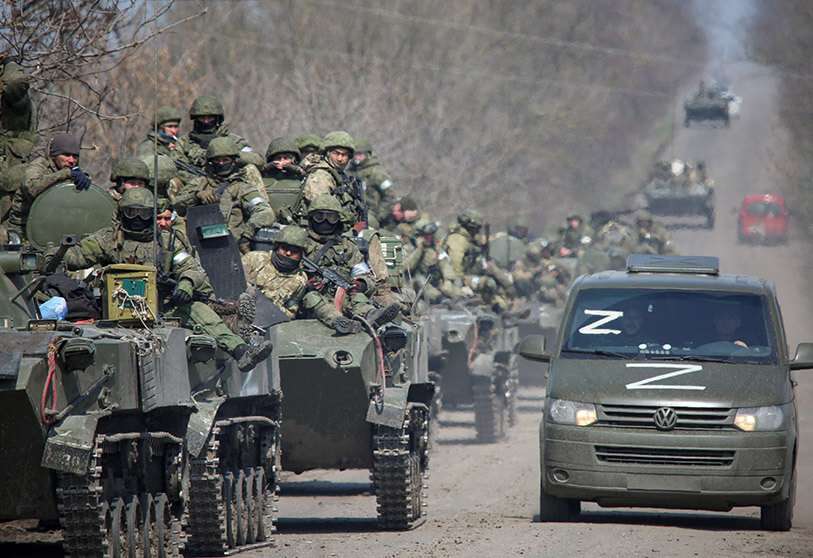
Putin had a number of 'objectives set at the geostrategic, geopolitical and geographic levels'. Contrary to popular belief, because it is in his interest to launch him into the IC, he has already achieved some of them.
It is about to occupy the entire Donbas and link the Crimean peninsula with Russia through those and other key points. It is close to denying Ukraine access to the sea, thereby cutting off a major link to the outside world for exporting its products.
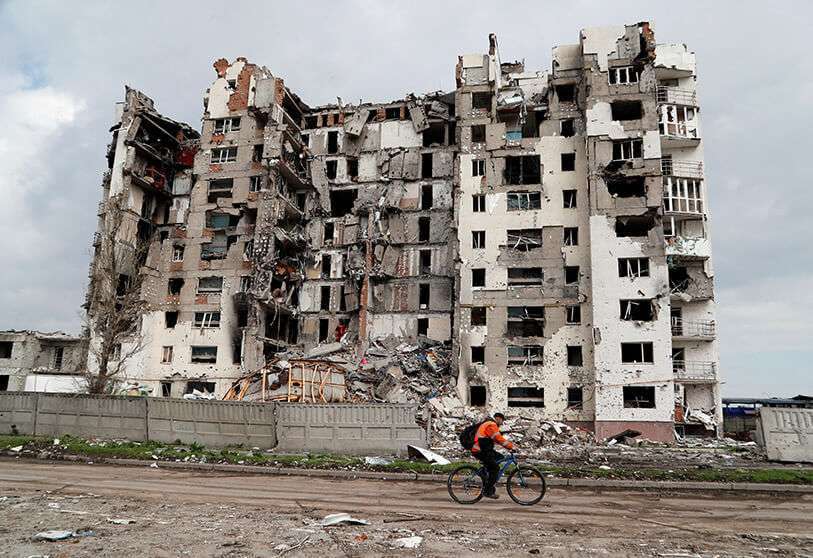
The mantra that a major positive effect has been achieved in IC bodies such as NATO, the EU and the UN has been repeated time and again, which is not quite the case or rather the We could argue that NATO has been strengthened, albeit partially, by increasing its 'intent' to spend more on defence and by waking up to the realisation that the enemy that gave rise to it is still alive and raring to expand.
We could argue that NATO has been strengthened, albeit partially, by increasing its 'intent' to spend more on defence and by waking up to the realisation that the enemy that gave rise to it is still alive and raring to expand.
But, on the other hand, this manifest unity, proclaimed to all winds, has been the fruit of and around a fallacy that denotes a great individual and collective weakness and an alarming lack of commitment to the excesses of the satraps against people, culture and democracy in territories neighbouring their area of interest and responsibility. A fallacy that really consists in making the world believe that the Alliance does not and will not enter into conflict in order to prevent the outbreak of a Third World War - a war that could very likely degenerate into a nuclear conflict.
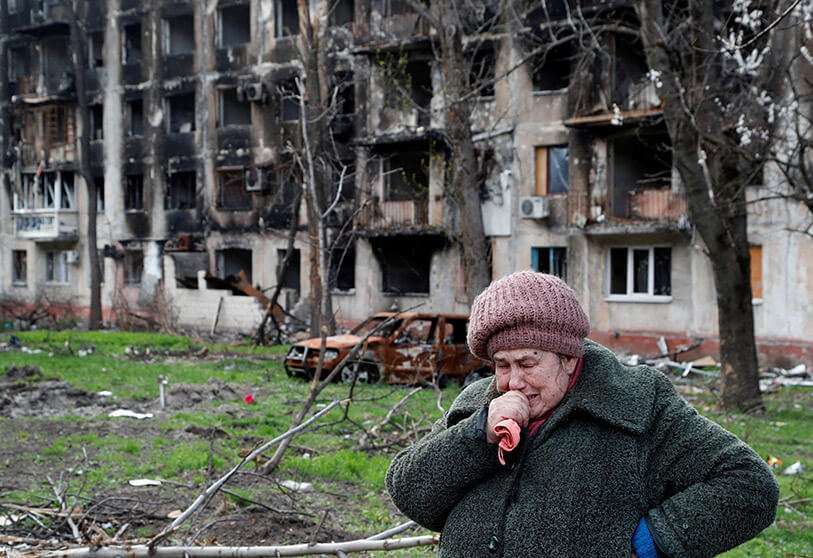
But, on the other hand, this manifest unity, proclaimed to all winds, has been the fruit of and around a fallacy that denotes a great individual and collective weakness and an alarming lack of commitment to the excesses of the satraps against people, culture and democracy in territories neighbouring their area of interest and responsibility. A fallacy that really consists in making the the world believe that the Alliance does not and will not enter into conflict in order to prevent the outbreak of a Third World War - a war that could very likely degenerate into a nuclear conflict.
The UN and the EU have proven ineffective and useless in dealing with and influencing such conflicts, and today, it is safe to say that several members of the EU itself are subsidising Putin's war by continuing to buy gas and oil from him to maintain his sphere of comfort; this is causing more than a few conflicts and differences within the EU itself when deciding how and when to cut off such supplies.
Putin's ability to 'deter the use or threat of nuclear weapons' has had the desired effect; the IC, because of the fear it has created, has decided without batting an eyelid or hesitating for a moment to leave the Ukrainians alone against the invader and to soothe their consciences by providing them with information and some training and leaving them to wear down or even - if possible - defeat the falsely proclaimed by all Westerners as a super-powerful Russian army - with significant bloodshed, in their own lands and cities in exchange for a pat on the back, the delivery of small quantities of weapons and guided tours of the kind of election campaign or political propaganda unworthy of those who boast of what they do not know and are not.

